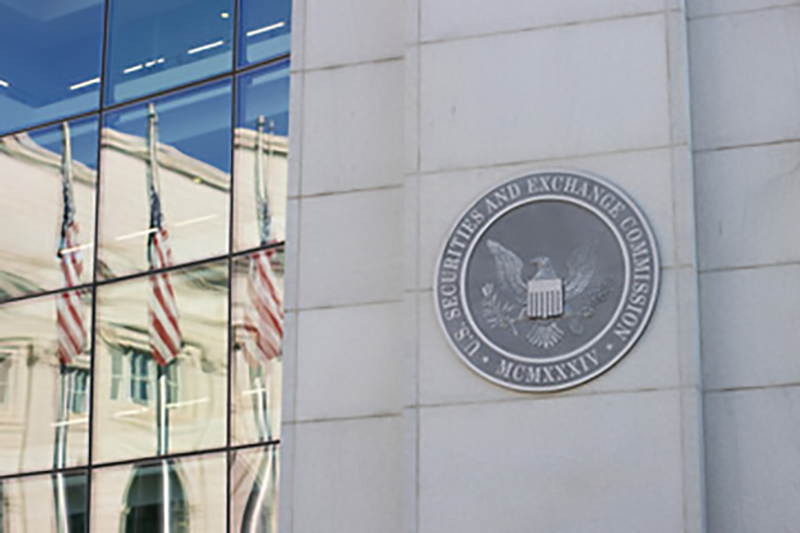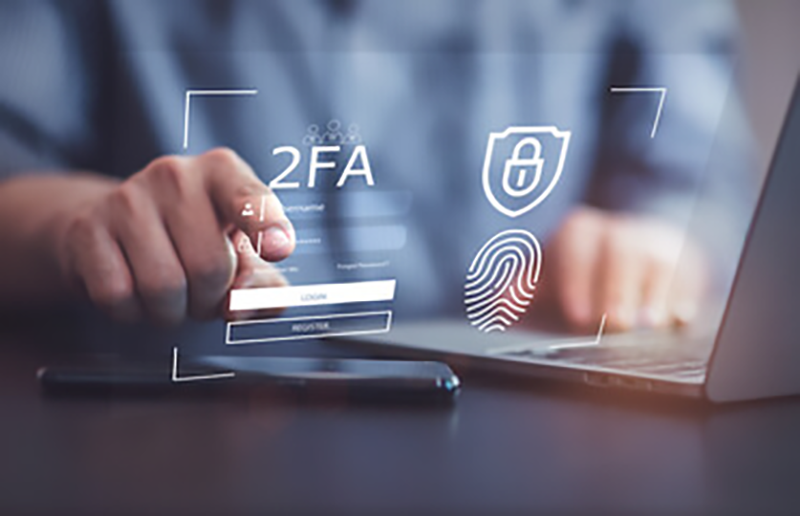Internet safety is more important than ever. Over the last five years, the Federal Bureau of Investigation’s (FBI) Internet Crime Complaint Center (IC3) has received an average of 758,000 complaints each year about Internet scams. It also received 2,825 complaints about Ransomware, with losses totaling over $59.6 million.1
To protect yourself and your business, it’s necessary to set up best practices for keeping your online assets and activities safe.

Why Internet Safety Matters
When you’re on the Internet, you’re sharing a lot of information—sometimes more than you realize. If you’re not careful, that information can fall into the wrong hands, and that can cause big problems for you.
Think about your passwords, personal details, or even what you post on social media. If someone gets access to those things, they could steal your identity, mess with your accounts, or even try to scam you out of money.
You should also care about Internet safety to keep your devices safe. Hackers can use malicious programs to mess with your computer or phone, and sometimes those issues can be expensive or hard to resolve.
And then there’s your privacy. Not everyone online has good intentions. If you’re not cautious, people can track what you’re doing, target you with ads, or even use your information in ways you didn’t agree to.
Get A Secure Connection For Your Website
Your website is often the first place customers meet you. But if it gets hacked, it can break their trust and hurt your business. So make sure your website has a secure connection.
Look for the little padlock icon in the browser next to your web address. If it’s not there, it’s time to get a Secure Sockets Layer (SSL) certificate. When SSL is used, a website’s address will change from HTTP to HTTPS, where the “S” stands for “secure”.
You should also install security plugins that can help block malware and brute-force attacks. If you’re using platforms like WordPress, there are plenty of great options to choose from. Use tools to scan your site for vulnerabilities. Regular checks can catch problems before they get out of hand.
Don’t Use “Password123”
Using strong and uncommon passwords isn’t just a good habit—it’s one of your defenses. In fact, 81% of hacking-related breaches happen because of bad password practices. And yet, 54% of people still rely on memory alone to manage their passwords, even at work!
So, go for at least 12 characters. Add variety—mix uppercase, lowercase, numbers, and symbols. Think “P@ssw0rd!” but way more creative. Don’t use your business email passwords for your personal accounts.
In addition, use a password manager. As of 2024, 36% of American adults use password managers, which represents nearly 94 million users, according to a Security annual report.
Taking a little time now to create strong passwords can save you from hassles and headaches later on.
Set Up Multi-Factor Authentication (MFA)
By January 2023, almost two-thirds of people were using MFA. A LastPass survey indicates that big companies are leading the way—87% of them use it! But smaller businesses? Not so much. Only 27% have adopted MFA measures.
Businesses of all sizes should enable MFA because it’s that extra security layer that makes it much harder for hackers to get into your accounts. Set it up for your email, banking, and any other critical accounts. Most services offer MFA in their security settings. It’s usually a quick setup, and the peace of mind is worth it.
Patch Your Software ASAP
Keeping your software up-to-date is one of the easiest ways to keep hackers out. Old versions often have security vulnerabilities that attackers know how to exploit. In Mandiant’s 2024 report, there’s 38% of intrusions, where attackers exploited vulnerabilities in software to gain access.
That said, software applications usually come with updates for those vulnerabilities. All you have to do is install them. For your operating system, antivirus, and apps, let updates happen on their own. This way, you don’t have to remember to do it. When you see a notification for an update, don’t ignore it.
Regular software patches also help ensure compliance with regulatory standards and protect against potential Cyberattacks.
Be Wary Of Third-Party Apps
Third-party apps can help you work faster, stay organized, and do more with less effort. But here’s the catch—they can also bring risks if you’re not careful.
Before downloading, take a minute to read reviews and ratings. Stick to apps with a good reputation and lots of positive feedback. When you install an app, it might ask for access to things like your contacts or location. Ask yourself: Does this app really need that? Only give it what’s necessary.
Apps can also have security vulnerabilities just like any software. Updates improve these vulnerabilities, so make sure you’re running the latest versions.
Use Secure Wi-Fi
If your Wi-Fi setup is not secure (whether you’re working at the office, from home, or at a coffee shop), it’s like leaving your front door wide open for malicious attackers who can sneak in, steal your info, or worse. Don’t stick with the default password like “admin123.” Make it long, unique, and hard to guess.
Also, check your router settings and make sure it’s using WPA3 or WPA2 encryption. This scrambles your connection so hackers can’t read what’s happening.
Backup Your Data, Physically Or Offline
Backups can save you from losing everything and paying hackers. Focus on the important stuff—files you can’t afford to lose, like customer data, financial records, and business documents.
This means creating a copy of your files on an external hard drive, USB drive, or another physical storage device. You can then store this backup device in a safe location, like a fireproof safe or off-site storage.
Think of backups as your safety net. If something goes wrong, you’ll have a copy ready to get you back on track. It should be a part of your business continuity plan.
Review Account Activities
Keeping an eye on your accounts is one of the easiest ways to catch problems early. Most banks and online services let you turn on notifications for suspicious activity. You’ll get a heads-up if something doesn’t look right, like an unusual login or a big withdrawal.
Take a few minutes to scroll through your account history. Look for anything you don’t recognize, like logins from places you’ve never been or transactions you didn’t make.
Get Cyber Insurance
Sometimes, no matter how careful you are, things can still go wrong. Cyber insurance can help with recovery costs from data breaches, Ransomware attacks, and other cyber threats. It’s designed to protect your business when something happens to your digital assets.
According to Gordon Coyle, a Cybersecurity insurance expert, this is the only type of coverage that helps with losses related to hacks, breaches, or Cyberattacks. With Ransomware incidents growing fast, having this protection makes sense. Not all businesses are the same, so it’s a good idea to work with someone who can help you pick the right policy for your needs.
If your company values its data—and let’s be honest, who doesn’t—cyber insurance is a smart move. It’s about being prepared for the unexpected so you can bounce back quickly if the worst happens.
Make Cybersecurity A Part Of Your Work Culture
Most Cyberattacks start with something simple, like an email. Hackers send messages with suspicious links or use urgent language like, “Your account will be closed!” It’s designed to make people panic and click before they think.
So, what can you do? Make Cybersecurity awareness a habit in your company. Train your team on what to look for, such as phishing emails, strange links, and anything that feels off. A second of caution can save a lot of trouble.
When your team knows what to watch out for, they’re better equipped to stop threats before they become a problem. Together, you can make Cybersecurity everyone’s business.

FAQ
Why Is Internet Safety So Important For Small Businesses?
With more business activities happening online, small businesses need to safeguard their digital assets and customer data. Not only can cyber threats disrupt business operations and damage your reputation, but they can also cost you money in terms of lost revenue, legal fees, and damage control.
What Should I Do If My Business Is Hacked?
If your business is hacked, act fast! Disconnect affected systems, report the attack to your IT team or Cybersecurity expert, and notify any impacted customers. Change passwords, review your accounts for unusual activity, and backup your data if possible. Finally, report to relevant authorities (e.g. FBI’s IC3) and work on a recovery plan.
Can I Handle Cybersecurity Myself Or Do I Need A Professional?
While you can handle some basic Cybersecurity steps, it’s best to get professional help for more advanced protection. 2Secure Corp recommends using endpoint protection, which secures devices like computers and phones from attacks, as well as email security to prevent phishing and malware. A Cybersecurity expert can provide the right tools and strategies to keep your business safe from more serious threats.

Source:
- (n.d.). Federal Bureau of Investigation Internet Crime Report 2023 [Review of Federal Bureau of Investigation Internet Crime Report 2023]. In IC3.gov. Internet Crime Complaint Center. https://www.ic3.gov/AnnualReport/Reports/2023_IC3Report.pdf




